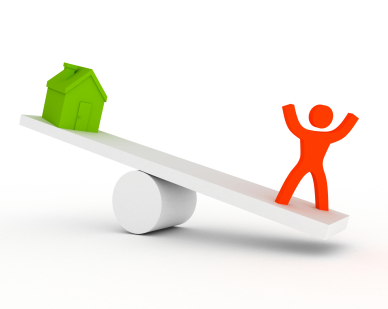
Hello Everyone,
Most experienced real estate investors do not use any of their personal funds to purchase rental properties. It is not uncommon for experienced investors to own dozens of rental properties, yet at the same time having never used a single penny of their own personal savings. These investors have mastered the concept of leverage, and that is what allows them to continue to buy multiple properties. To help you understand leverage a little bit better, I have asked one of my fellow real estate investors to answer a ‘reader’s question’ for you.
Here is the question that one reader had recently submitted:
Hi Neil, great info.
RE: First Rental Property
Most down payments come from secured line of credit or sometimes called HELOC, the question is do investors pay down the loan or leave it?
Regards,
J
Great questions, J! Now to answer the question, here is a response from an experienced and trusted real estate investor, Todor Yordanov. Todor himself has used the concept of leverage in his real estate investing career, and has some advice to offer “J” and any other novice investors thinking about using leverage…
Take it away, Todor!
Hi J,
Todor here.
This is an interesting dilemma
Many beginner investors will use money from a Secured Line of Credit as a down payment for their first or second investment property. A Secured Line of Credit, also known as HELOC (home equity line of credit) is a Line of Credit secured against your home.
Typical interest rates on these Lines of Credit are around prime plus 1%, thus making it very affordable to borrow funds. Given the fact that your equity is “just sitting there” and not working hard to make you more money and also the record low interest rate to borrow against it makes it very attractive option to use as a down payment.
Back to the question!
You already purchased a property that cash-flows positive every month. Now do you only pay the minimum, usually interest only, on your line of credit and keep the rest in your pocket or do you also try to pay down the principle as well.
This entirely depends on your objective for the property, your exit strategy and how the property performs. There are no wrong answers, but there may be wrong decisions.
Accounting, taxation and ultimately where your “pay cheque” comes from will determine the right answer for you!
Here are some things to consider:
- Your monthly cash-flow and what you do with it. If the positive cash-flow covers all expenses and you have enough left over to pay down the principal on the Line of Credit, then why not? Some investors rely on cash-flow to cover their living expenses, i.e. full-time investors.
- Taxation – Are there any tax advantages in paying down the principal?
- Your long term and short term objectives.
It is entirely possible that you are planning to retire in few short years and “just want to pay everything off” and live off the rental income. Paying down debt may be right for you.
But also look at it this way: You are using cash-flow money (profit) and in fact re-investing it back into a Line of Credit or principle pay down. Will the money work hard for you? Can you do something better with your profits? The answer will be different for each investor.
Perhaps you can split your profits. Use some to pay down debt ( mortgages, Lines of Credit, credit cards) , use some to re-invest, use some to have fun. After all you should reward yourself for working hard and creating income streams that work.
Eventually after 25-35 years the mortgage will be paid off and hopefully the value will be significantly higher, which will more than cover your original down payment. But typically after 5 years the property’s value is high enough to allow you to refinance at the new value, get a new mortgage and take your original down payment back.
Right now money is “cheap”. The borrowing costs are so low, that the more I can borrow to buy income producing properties, the better. You still have to be very careful to get into the right properties, in the right locations. The type of properties that give you:
- The highest possible monthly cash-flow
- Excellent potential for Equity appreciation
- And solid tenants that pay your mortgage every month
As long as I have a property that can service all the debts associated with it and still provide me with positive cash-flow, I’ll keep it in my pocket and re-invest it for now.
I hope that helps to answer your question, J.
-Todor.
Todor Yordanov is a long time real estate investor with a focus on long term cash-flow properties that provide superior returns to his investors. He regularly blogs on his web site www.ProactInvestments.com
Happy Investing!
Neil
CLICK HERE to be contacted about The H.O.P.E. Program or to have your Credit Fixed!

